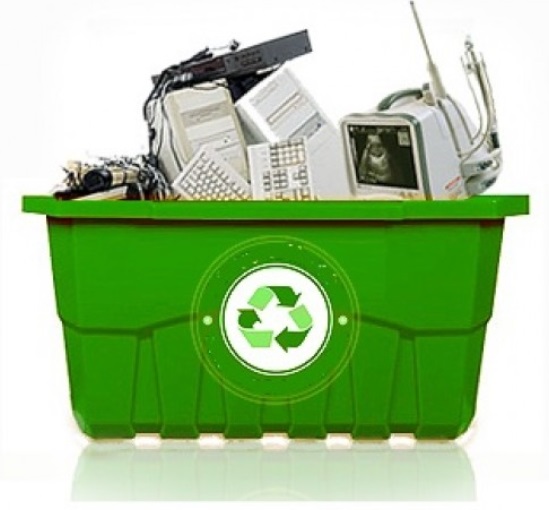Increasing Efficiency and Sustainability: Guide to Reverse Logistics System with Greentek Reman
Businesses are realising more and more how important reverse logistics system is to their supply chain management in this business environment. The reverse logistics market is expected to reach USD 39.81 billion by 2027, according to the India Reverse Logistics Market Report 2022-2027.
Furthermore, GreenTek Reman, a well-known ITAD service provider in Delhi, for its trustworthy reverse logistics offerings. Skilful two-way flow of product management is essential for e-commerce businesses, particularly when it comes to product returns.
This manual offers a thorough introduction to reverse logistics. Also highlighting how it differs from standard logistics and offering suggestions for setting up a productive system.
Overview of Reverse Logistic System
Reverse logistics is an essential component of any supply chain. It is the transportation of goods—digital or physical—from the point of sale back to the source. It handles warranty claims, surplus inventory, product recalls, and consumer returns. It is essential to cut down on waste in the environment, raising customer happiness, and increasing revenues.
Reverse logistics systems that are properly implemented have a positive impact on the environment and improve consumer satisfaction. They also help to cut costs associated with product recalls and garbage disposal. Businesses should evaluate returned goods, the return, the expenses involved, and the technology and resources that are available. Businesses may guarantee the profitability and effectiveness of their supply chain and its crucial position by realizing the importance of a reverse logistics system and implementing an effective system.
The 5 R’s of Reverse Logistics are as follows-
- Returns
- Reselling
- Repairs
- Repackaging
- Recycling
Read More : What are the benefits of recycling e-waste through an authorized recycling company?
Difference Between Reverse Logistics Vs Traditional Logistics
The forward flow of items along the supply chain is the main focus of traditional logistics, which emphasizes the effectiveness of product delivery to customers. Traditional logistics, emphasizes timely and economical product delivery, while reverse logistics places a higher priority on product recovery, recycling, and reducing environmental impact.
On the other hand, reverse logistics is a more complex procedure that involves controlling the flow of goods in the other direction. The goals, procedures, and difficulties involved in managing returned items are where the main distinctions can be found
How to Implement Reverse Logistics System in Your Business?
- From the Perspective of a Logistics Service Provider
Enhancing compliance with laws and guidelines is essential for logistics service providers. Frameworks for authorizing the shipment of garbage are outlined in the EU garbage Legislation. It’s critical to understand the differences between hazardous and non-hazardous trash. Logistics companies occasionally work together with unethical producers, which results in improper handling and misreporting of goods during import and export. It is critical to exercise caution when separating ethical recyclers from unethical ones because shipments are frequently shipped with little information about the cargo, depending only on exporters’ declarations.
- From a Regulatory Perspective
Voluntary initiatives and legal rules coexist in a delicate balance when it comes to e-waste management. By outlawing garbage imports at the source of the issue, numerous nations have made significant progress. Governments can promote voluntary recycling by providing incentives to businesses involved in the recycling industry, thereby improving e-waste management even further. A more effective framework for sustainable e-waste practices is produced when additional incentives are combined with stricter rules.
- From a Manufacturer’s Perspective
For businesses, increasing research and development expenditure is crucial. Everyone wins when product designs are made to be more recyclable or biodegradable. Global market leaders can shape behaviour by implementing corporate social responsibility programs. To address environmental concerns and promote sustainable practices, companies could establish additional recycling centres for their products or lengthen the life cycles of their electronics.
The Process of the Reverse Logistic System at GreenTek Reman
- Contract Signing: For efficient reverse logistics, Greentek works with OEMs, e-commerce companies, and logistics partners. This collaboration makes it easier to handle user-returned, Dead-on-arrival (DOA), and carton-damaged items effectively.
- Returning Damaged/Returned/EOL Inventory: Greentek Reman arranges for nationwide logistics to collect electronic equipment at the request of its clients. A smooth process for returning damaged, returned, or End-of-Life (EOL) merchandise is guaranteed by this all-inclusive service.
- Repair/Refurbishment: Greentek Reman handles e-waste in an environmentally responsible manner. Ferrous and non-ferrous components of electronic equipment are separated after dismantling and shredding it. Our plant processes the recycled EOL products, and hazardous material is sent to TSDF for appropriate disposal.
- Asset Recovery & Liquidation: In the reverse logistics process, GreenTek gives repurposing first priority. Electronic assets that have been recovered are carefully assessed and, if possible, resold. With this sustainable method, the environmental impact is minimized and the value of returned products is maximized.
Read More : What are the benefits of metal recovery from e-waste?
GreenTek Reman: Get the Best Reliable ITAD Service Providers In Delhi
Reverse logistics solutions that are dependable and sustainable are the area of expertise for GreenTek Reman, a leading IT Asset Disposition (ITAD) services providers in Delhi. GreenTek Reman provides services including IT asset recovery, data deletion, and responsible recycling because it is dedicated to reducing e-waste and optimizing the value of IT assets.
With an emphasis on customer demands, they customize solutions to meet the unique requirements of companies, guaranteeing the safe handling of IT assets and promoting environmental sustainability through ethical e-waste management. Reverse logistics system is becoming more and more important to organizations as they strive for sustainable supply chains and efficient operations. GreenTek Reman, an ITAD service provider in Delhi, is a dependable partner that adheres to the ethical reverse logistics system Noida.


